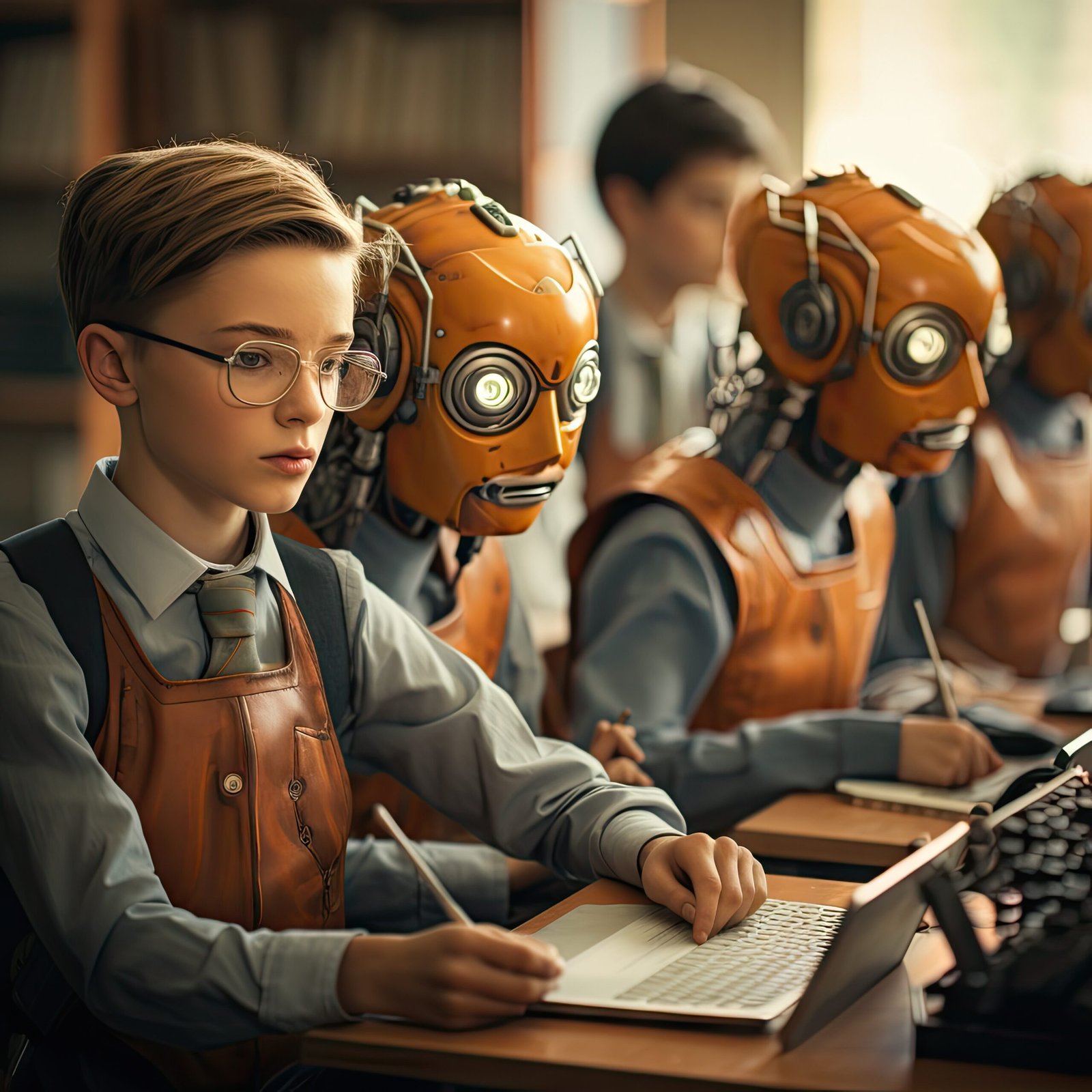Role of Artificial Intelligence in Education Management Systems
- May 17, 2024
- EDUiPixxel
Do you know anything about chatbots, intelligent tutoring systems, and ChatGPT? Yes, these AI-powered tools are quite popular right now. You cannot dispute how drastically the introduction of AI into education is changing the landscape if you are aware of the changes taking place in this field. Personalized learning is introduced by integrated artificial intelligence, which transforms the conventional one-size-fits-all methodology. The integration of AI in EdTech products such as LMSs and school ERPs has reached an all-time high due to the alluring benefits that follow this inclusion.
We are all aware that education is and always will be an essential aspect of our life. But as time and technology improve, we may transcend the shortcomings of traditional learning and provide fresh insights into the educational system as a whole. Discover how artificial intelligence is going to change education both now and in the future!

AI in Education Statistics:
- In October 2023, Forbes Advisor conducted a study in which over 50% of instructors expressed their belief that artificial intelligence (AI) can have a positive impact on the educational system as a whole.
- Nearly 60% of them include AI in some capacity into their teaching. They employ AI technologies to enhance and simplify their daily teaching duties.
- The poll also showed that they employ automated workflows for grading and feedback using an education management system that is connected with AI.
How can AI bring a revolutionary change in the traditional education system?
The application and utilization of AI tools and techniques to enhance the teaching and learning processes is referred to as artificial intelligence in education. This cutting-edge technology advances human intellect by utilizing computers. It gives individuals the ability to comprehend, evaluate, and react appropriately in a learning environment. There are various uses for AI integration in education:
1. Personalized Learning:
Personalized learning takes into account each student’s unique requirements and interests while creating learning pathways that are tailored to their skill level and speed.
2. Intelligent Tutoring Systems:
Intelligent tutoring systems provide tailored feedback and assist students in improving their learning. By removing the limitations of traditional learning systems, it provides a more engaging, dynamic, and adaptable learning experience.
3. Assessment & Grading:
Errors are common in manual evaluation and grading, which can seriously harm a student’s career. Schools can ask vendors to add modules to their learning management system for the purpose of automating grading, or they can use automated grading systems themselves. The system will assign grades and assess student achievement. This system is capable of implementing multiple choice questions, descriptive assessments, mathematical problems, and other types of assessments.
4. Administrative Improvements:
A Few Sneak Peaks at the Education Sector’s Future!
It seems sense that AI’s futuristic qualities will have a significant impact on the education industry in the years to come. The following are some developments that this honorable industry has seen in recent years, either on or off campus:
A. AI Tutors and Assistants:
- AI-driven tutors will be on hand around-the-clock to offer students individualized, peer-to-peer support throughout their academic career.
- By allowing students to learn at their own pace, a learning management system will improve the effectiveness and accessibility of the entire process.
B. AI-powered Counseling:
- Using data analytics and specific student preferences, AI provides well-informed recommendations to assist in the counseling industry.
- It can provide insightful analysis and career recommendations based on the student’s performance, behavioral patterns, hobbies, and preferences.
C. Virtual Classrooms
- Virtual classrooms, with their ideal fusion of technology and customization, will raise the bar for education.
- Physical limitations will be broken, and the tailored content will be improved.
Last Words of Wisdom!
AI has the potential to transform education, empower stakeholders, and improve the learning process. It already exists and will continue to do so. It appears that incorporating AI into education will make it simpler to create a welcoming, flexible, and inclusive learning environment. Through the use of AI in EdTech goods, such as school administration software,